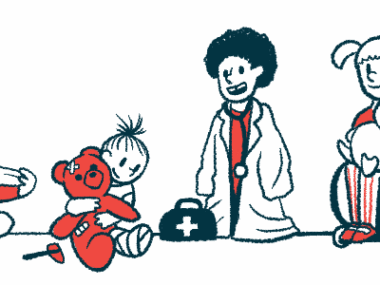Why I made myself a priority, despite my son’s PWS
The challenges of my household helped me appreciate self-care
Written by |

I’m a woman of a certain age, and self-care was never mentioned in my younger years. Today, thankfully, there’s considerably more information about this important concept, and we women should take note. After all, we typically have two jobs: working outside the home and handling the bulk of a home’s domestic life. True, fathers have taken on more responsibility, but most mothers still direct the show.
If a special needs child is added to family life, parents’ responsibilities increase exponentially. That was the case for me: My now-adult son, Robert, has Prader-Willi syndrome (PWS).
Taking time for myself in those early years with Robert was essential. Often, parents — generally mothers, I’ve observed — drive themselves to extremes in their duties. Caring for my son was a priority, but I learned early that my own rest and play were vital if I were going to succeed.
My mother was my sustainer. One day she mentioned, “Of my three daughters, you’re the one selfish enough to take care of yourself.”
At the time, I thought, “Really, Mom?”
I mentioned this moment in my book, “Raising Robert,” and clearly remember her statement. She was right (maybe not about the selfish part!) because I did take care of myself. Exercise, friends, spiritual counseling, and therapy helped me enjoy my life.
Asking for help was the way I achieved self-care. Robert couldn’t be left alone, so my sister offered to have sleepovers most Fridays. That allowed my husband and me to have a date night with no worries. Friends babysat, my mother did laundry, and the pastor at my church offered spiritual counseling. Subsidies for camps and programs offered us some time alone. I knew that eventually I’d pay it forward and be a blessing to others.
Why self-care and help are necessary
If you’re unfamiliar with PWS, you may think, “Why is this mother so needy?”
People with this syndrome are on a spectrum; some are highly functioning and have attained college degrees. The vast majority of them, however, have hyperphagia and are always hungry and seeking food. Weight gain might seem uncontrollable, even with exercise, portion control, limits to snacks, and no juice. And that’s not the only problematic symptom: Perseveration, or the inability to move on from a topic or situation, and obsessive-compulsive disorder can cause outbursts and other troublesome behavior.
We received help, support, and treatment at the PWS clinic at Gillette Children’s Hospital in St. Paul, Minnesota. Our visits, in which three or four specialists would come to our room, lasted most of the morning. Imagine the time and inconvenience of having to make and keep those appointments separately.
Occupational and physical therapy were prescribed. Generally, these visits were outside the clinic and provided by an early childhood therapist who visited our home or offered special school programs.
I understand that numerous people will think, “This is my child; I’m fully responsible.” And admitting you need help is humbling; you’re declaring you can’t do everything. Ultimately, I realized my needs and lifted a huge burden off our family.
Such difficulties, however, are in the future when you’re holding a beloved baby. Some of the child’s behaviors may not begin until ages 5 or 6. Before then, you might think, “Maybe we’ll be lucky.” Once the behaviors begin, you might think, “How bad is this going to get?”
Many parents of children with PWS are affected daily by anxiety. And that’s not all: grief, anger, frustration, and impatience flow in and out of our lives. That’s why plenty of rest, healthy food, exercise, and time for ourselves will help us cope with these feelings.
That’s the kind of self-care that has benefited me. Erasing wrinkles with Botox and surgically changing my face are not foremost in my mind as a way to cope.
I say that even though medical science has improved my life. After breast cancer and a mastectomy, I had reconstructive surgery, and it absolutely improved my self-image. Corrective surgery was miraculous for me — but not without risk. Mine left my upper back and chest area numb.
Given that, I don’t think such elective surgical procedures are the same as self-care.
I’m happy to see that additional help is available to parents today. Yet PWS remains demanding. Enjoy the milestones, while accepting that developmental delays are your child’s reality. A healthy dose of self-care, along with accepting what is instead of what you wish it were, will help.
Note: Prader-Willi Syndrome News is strictly a news and information website about the disease. It does not provide medical advice, diagnosis, or treatment. This content is not intended to be a substitute for professional medical advice, diagnosis, or treatment. Always seek the advice of your physician or other qualified health provider with any questions you may have regarding a medical condition. Never disregard professional medical advice or delay in seeking it because of something you have read on this website. The opinions expressed in this column are not those of Prader-Willi Syndrome News or its parent company, Bionews, and are intended to spark discussion about issues pertaining to Prader-Willi syndrome.







Leave a comment
Fill in the required fields to post. Your email address will not be published.